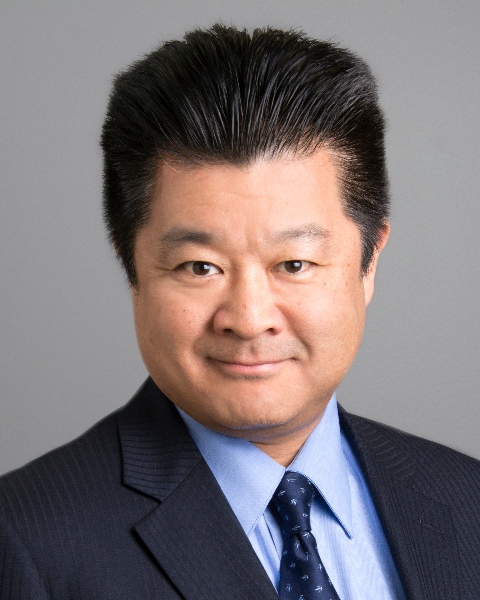Breast
E20: Ki67 Gene Expression Was Associated with Complete Response to Neoadjuvant Chemotherapy but with Worse Survival in ER+/HER2- Breast Cancer

Kohei Chida, MD (he/him/his)
Research Fellow
Department of Surgical Oncology, Roswell Park Comprehensive Cancer Center
Buffalo, New York, United States
Kohei Chida, MD (he/him/his)
Research Fellow
Department of Surgical Oncology, Roswell Park Comprehensive Cancer Center
Buffalo, New York, United States
Kohei Chida, MD (he/him/his)
Research Fellow
Department of Surgical Oncology, Roswell Park Comprehensive Cancer Center
Buffalo, New York, United States- RW
Rongrong Wu, MD, PhD
Assistant Professor
Department of Breast Surgery and Oncology, Tokyo Medical University, United States - AR
Arya Mariam Roy, MD
Hematology/Oncology Fellow
Department of Hematology and Oncology, Roswell Park Comprehensive Cancer Center, United States - LY
Li Yan, PhD
Associate Professor of Oncology
Department of Biostatistics & Bioinformatics, Roswell Park Comprehensive Cancer Center, United States - TI
Takashi Ishikawa, MD, PhD
Professor
Department of Breast Surgery and Oncology, Tokyo Medical University, United States - KH
Kenichi Hakamada, n/a
Professor
Department of Gastroenterological Surgery, Hirosaki University Graduate School of Medicine, United States 
Kazuaki Takabe, MD, PhD
Professor of Oncology
Department of Surgical Oncology, Roswell Park Comprehensive Cancer Center
Buffalo, New York, United States
ePoster Abstract Author(s)
Submitter(s)
Author(s)
Highly proliferative cancers tend to exhibit better response to neoadjuvant chemotherapy (NAC), and pathological complete response (pCR) is a recognized surrogate for improved survival outcomes. Recently Ki67, a widely used cell proliferation marker assessed by immunostaining, has been proposed as a marker for lymph nodal downstaging after NAC. However, conventional immunostaining is susceptible to variability influenced by the assessor and the institutional factors, including the antibody used. Therefore, we hypothesized that the Ki67 gene (MKi67) expression identifies highly proliferative breast cancer (BC) and is associated with higher pCR rate after NAC and improved survival.
Methods:
A total of 6623 ER+/HER2- BC patients from 11 independent cohorts with tumor transcriptome and clinical data were included in our analysis. Within each cohort, the top 20% of MKi67 expression was defined as the high expression group based on the previous studies using immunostaining.
Results:
Consistently across TCGA, METABRIC and GSE96058 cohorts, MKi67 expression correlated with histological grade. MKi67 high ER+/HER2- was linked with high proliferation score, and it enriched all the cell proliferation-related gene sets in the Hallmark collection; E2F Targets, G2M Checkpoint, Mitotic Spindle, and Myc Targets v1 and v2. MKi67 high ER+/HER2- was associated with increased intra-tumoral heterogeneity, homologous recombination defect, fraction altered, silent and non-silent mutations, and single-nucleotide variants (SNV) neoantigens. It also exhibited higher tumor infiltrating lymphocytes, interferon (IFN)-γ response, and B-Cell Receptor and T-Cell Receptor richness, and had higher infiltration of Th1 cells, Th2 cells, M1 macrophage, regulatory T cells, B cells, and plasma cells. Conversely, MKi67 low ER+/HER2- enriched gene sets related to Hypoxia, Epithelial-to-Mesenchymal Transition, KRAS-signaling, and Coagulation. We observed that MKi67 high ER+/HER2- was significantly associated with better pCR rate in six of the eight neoadjuvant chemotherapy cohorts. However, MKi67 high ER+/HER2- was significantly associated with worse disease-free, disease-specific, and overall survival consistently in METABRIC, and showed a worse overall survival in TCGA and GSE96058 cohorts.
Conclusions:
Highly proliferative ER+/HER2- BC, identified by elevated MKi67 expression, was significantly associated with increased pCR after NAC but was also linked to poorer survival.
Learning Objectives:
- Upon completion, participants will understand that Ki67 gene (MKi67) expression could identify highly proliferative ER+/HER2- breast cancer.
- Upon completion, participants will be able to describe the tumor characteristics associated with high and low MKi67 expression in ER+/HER2- breast cancers.
- Upon completion, participants will assess the implications of MKi67 levels for prognosis in ER+/HER2- breast cancer patients undergoing neoadjuvant chemotherapy.
